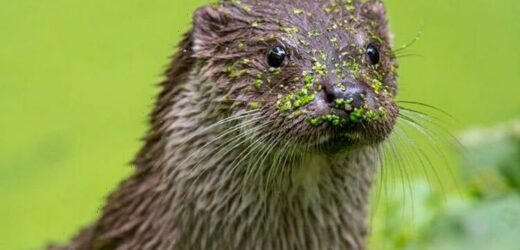Covid-19: Sir Patrick Vallance warns 'virus hasn't gone away'
We use your sign-up to provide content in ways you’ve consented to and to improve our understanding of you. This may include adverts from us and 3rd parties based on our understanding. You can unsubscribe at any time. More info
Researchers in Spain discovered a positive case in a Eurasian river otter found near a water reservoir in Valencia. In a paper published in Frontiers in Veterinary Science, scientists said they believed the infection had come from human waste water.
Analysis of the genetics of the form of Covid the otter had found that the mutations “point to human origin of the virus, although their specific combination was unique”.
Covid has already been found to infect other animals, including dogs, cats and zoo animals.
The revelation raises fears that wild animals could become a source of the virus for humans in the future, and could lead to unwanted mutations.
The researchers said that animals “could become secondary viral hosts and even disease reservoirs” for coronavirus, as they had been for previous, similar outbreaks.

In many western nations such as the UK, coronavirus is now seen to be becoming largely endemic – that is to say, the virus is spreading freely within the population but is unlikely to cause many deaths.
This is in part due to the three doses of the vaccine that most of the population has received, and the UK Government recently published their Living with Covid strategy to mark the end of restrictions.
However, as well as another new and dangerous variant arising among the human population, there are fears that humans could now be passing the virus on to animals in the wild.
This could then lead to a re-emergence of the virus in areas where animals and humans are in close contact – as the virus originally did – or the possibility of a novel mutated virus.

Consuelo Rubio, the principal investigator and co-author of the study, told Spanish News Today that the samples the team had taken suggested the virus had come from the nearby human population.
He said: “This points to a human origin of the virus detected in this wild otter, although its specific combination [of genes] was different.
“The infection could have occurred through contact with virus-contaminated wastewater in the river area inhabited by the otter.”
In the study, the researchers explained that scientists had previously identified coronavirus as having successfully infected several different types of animal, including household pets, lions and tigers.
DON’T MISS
Britain braced for ‘early shortages’ of tomatoes amid rising costs [REVEAL]
Jeremy Corbyn’s Ukraine remarks ‘demolished’ by former ally [REPORT]
UK and US have ‘big opportunity’ to isolate Russia and take major ally [INSIGHT]

Covid has also been detected previously in mammals similar to otters, but testing suggests that pigs and chickens are “non-susceptible”.
The researchers also noted a single US Government report of an Asian small-clawed otter contracting the virus in an aquarium in Georgia, as well as reports of white-tailed deer in the wild near Denver.
They said: “The infection of wild animals is of concern, as it may escape monitoring, with the possibility of viral evolution and re-entry into the human population from wild animal reservoirs.
“This is illustrated in the evolution of SARS-CoV-2 during the pandemic toward mice infectiousness, leading to the hypothesis of a mice origin of the omicron variant.”
WARNING: Graphic content below.

The academics, from the Cardenal Herrera University, the Institute of Biomedicine Valencia and the Autonomous University of Barcelona, said the findings “highlight the need” for Covid surveillance of wild mustelids – the group of carnivorous animals that includes otters.
They said this was needed “to evaluate the risk that these animals could become SARS-CoV-2 reservoirs”.
The otter’s body – found as fresh road kill – had been collected near the Bellus reservoir on the Albaida river.
The reservoir sits near the village of Beniganim, with a population of just under 6,000 residents.
Source: Read Full Article


